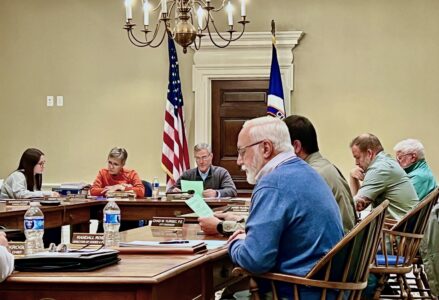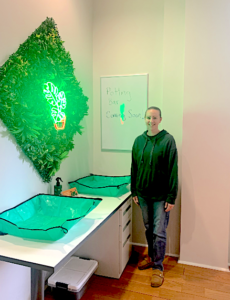Hutchinson proposes license reforms for CPAs

State Sen. Scott Hutchinson, R-Oil City, speaks during a Senate Majority Policy Committee meeting earlier this year.
The region’s state senator is sponsoring legislation to boost the number of certified public accountants in the state.
Sen. Scott Hutchinson, R-Oil City, and Sen. Nick Pisciottano, D-Monroeville, have introduced Senate Bill 719, a proposal the lawmakers have been working on with the Pennsylvania Institute of Certified Public Accountants (PICPA) and the Pennsylvania Society of Tax and Accounting Professionals (PSTAP). The bill will modernize the licensure process in Pennsylvania, which Hutchinson and Pisciottano say will address the evolving needs of the accounting profession.
Jennifer Cryder, CEO of the Pennsylvania Institute of Certified Public Accountants (PICPA), recently told the Philadelphia Business Journal that the accounting profession in Pennsylvania has more CPAs retiring and leaving the profession than it does new CPAs entering the state. That leads to a shortage of CPAs to work with businesses and individuals on tax planning, audits, risk management and strategic advice.
“The accounting profession stands at a critical juncture,” Hutchinson and Pisciottano wrote in their co-sponsorship memorandum. “Demand for CPAs and accounting professionals continues to rise, yet the number of individuals entering the field is insufficient to meet this need. In 2022, the number of CPA Exam candidates fell to its lowest level in nearly two decades.
Additionally, between 2020 and 2022, the number of bachelor’s degrees awarded in accounting declined by 7.8%. These concerning trends highlight the urgent need for action to address workforce challenges and ensure the long-term vitality of the profession.”
The lawmakers propose creating an additional way for CPAs to be licensed.
Under current law, CPA candidates must complete a master’s degree or 150 credit hours of education that includes the required accounting concentration, have a year of professional experience and pass the Uniform CPA Exam to obtain licensure. That method of licensing will remain available, but Hutchinson and Pisciottano also want to create a second way to a license by allowing candidates with a bachelor’s degree that includes the required accounting concentration, two years of professional experience and successful completion of the CPA Exam to qualify for a CPA license.
Hutchinson and Pisciottano also want to make it easier for out-of-state CPAs to practice in Pennsylvania by allowing qualified CPAs from other states to practice in Pennsylvania without obtaining a state certificate or permit as long as they hold a CPA license in good standing in their home state, have at least a bachelor’s degree, have completed an accounting concentration and passed the CPA exam in their home state.
“These updates will reduce barriers to entry for aspiring CPAs, align Pennsylvania’s licensure framework with workforce realities, and promote greater mobility for accounting professionals across state lines,” Hutchinson and Pisciottano wrote.



